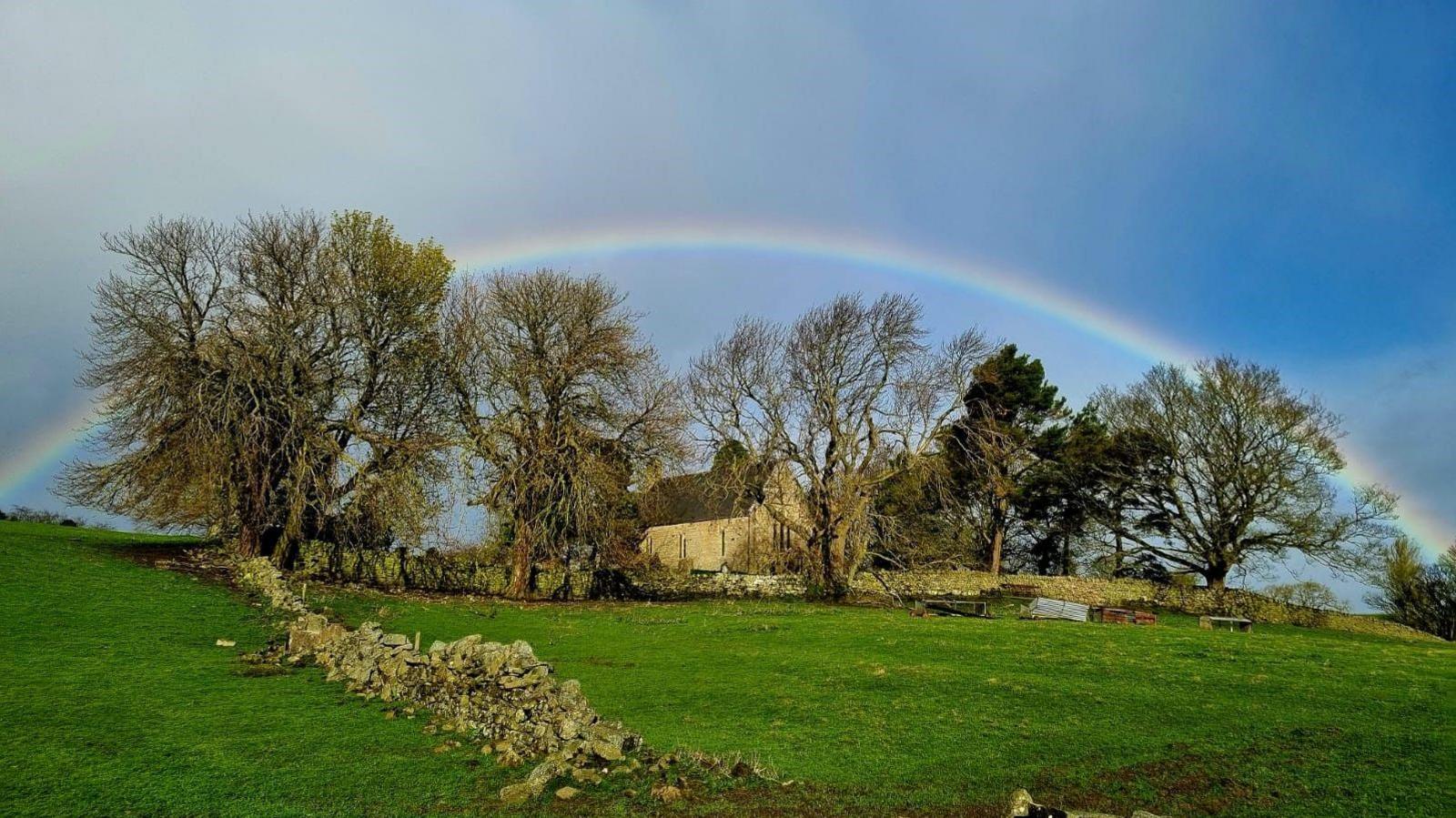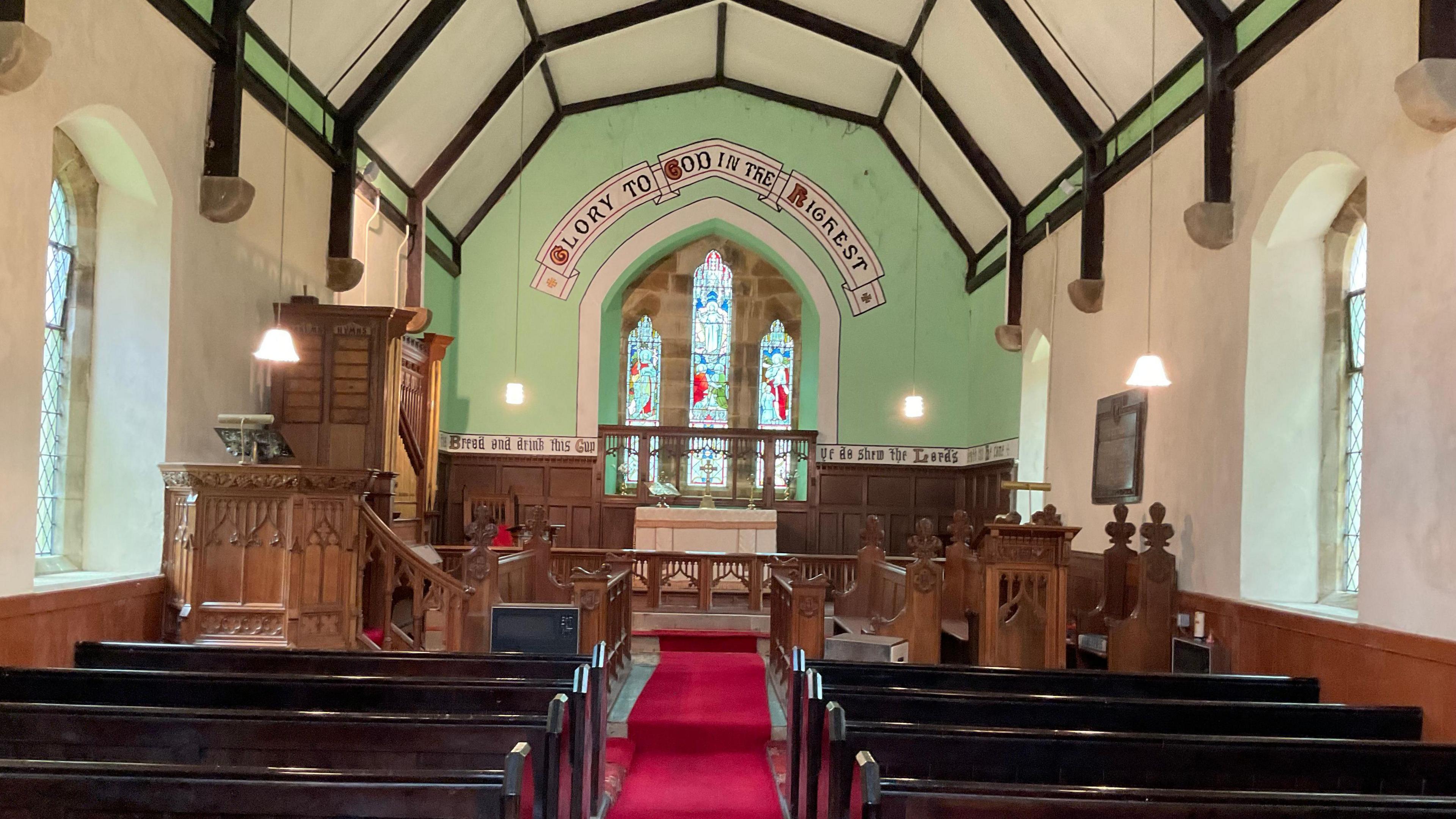Church will open doors to campers to raise cash

All Saints Church sits on a hill overlooking Muggleswick Grange
- Published
A rural church which has been running at a loss will open its doors to campers to raise money.
All Saints Church in Muggleswick, near Consett in County Durham, has received £18,986 from the National Churches Trust Grant to allow it to upgrade its building.
The work will allow it to offer a church camping service - which it calls "champing" - to those wishing to stay in the area.
Churchwardens Helen Barrass and Lynne Bean said the funding had "secured the future" of the "much-loved church".
The grant money will allow the church to install a new servery and accessible toilet. It will also be used to repair cracks in the building and repair its roof.
Once the work is completed, campers will be able to pay to stay the night, creating a new income stream for the church.
The church has been struggling financially because of the area's declining population.

Once renovation work is complete, tourists will be able to stay the night inside All Saints Church
"All Saints, Muggleswick will be the first church in County Durham to offer 'champing' accommodation, as well as remaining open for worship," said Ms Barrass and Ms Bean.
The church plans to work with North Pennines Area of Natural Beauty, Durham Northern Saints Trails and the Sanctuary Network Project to promote it as a place to visit.
It also plans to offer tourists a self-guided walk around the local nature reserve and the nearby Grade I listed ruins at Muggleswick Grange.
All Saints Church was built in the 18th Century and sits on a hill overlooking Muggleswick Grange. It is located on the Way of Light Northern Saints Trail between Heavenfield and Durham Cathedral.
The church's graveyard contains nine Grade II listed graves, dated from 1686 to 1860, including one believed to contain a dissenter from the gunpowder plot.
Follow BBC North East on X, external, Facebook, external, Nextdoor, external and Instagram, external. Send your story ideas to northeastandcumbria@bbc.co.uk.